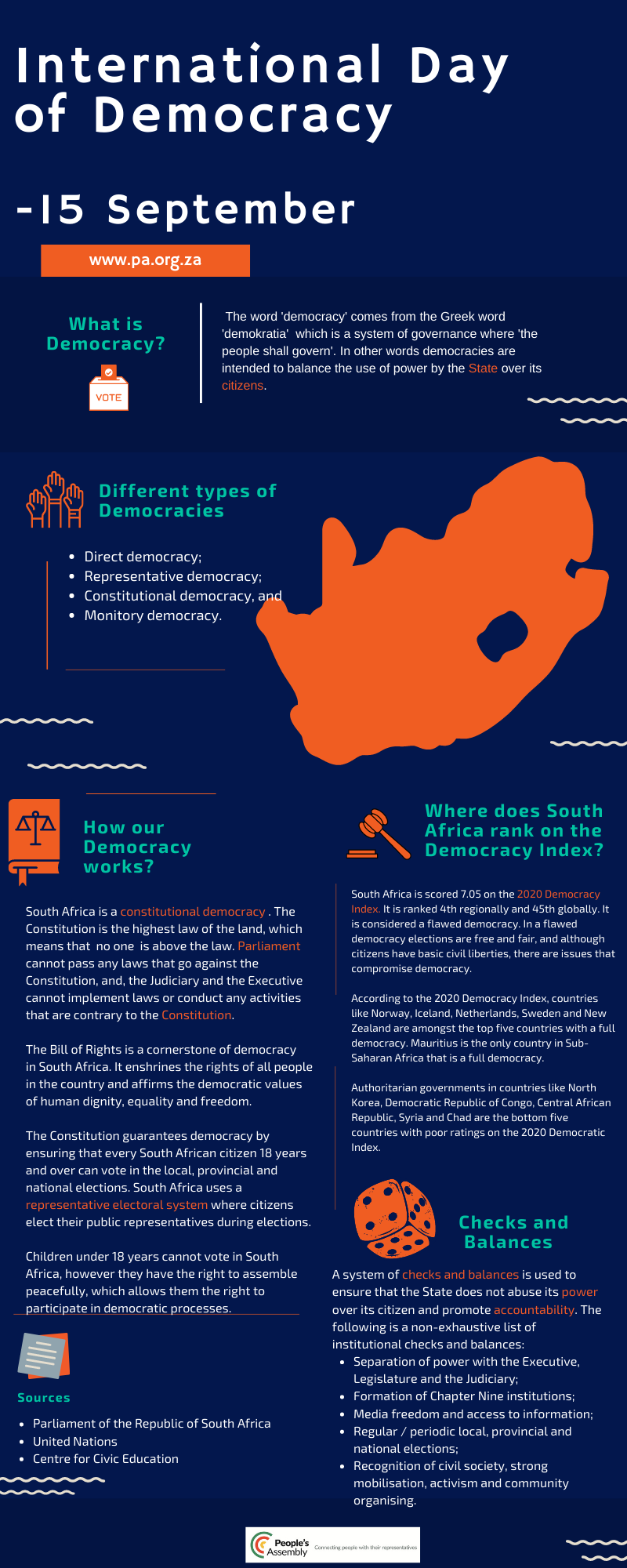On the 15th of September every year, democratic nations across the world observe International Day of Democracy. This observance provides an opportunity for many nations to review the state of democracy in their own countries, and more broadly, globally.
A democratic parliament is one that is representative, open and transparent, accessible, accountable and effective.
Representative parliaments are both socially and politically inclusive. They allow members to carry out their mandates freely, and their hallmarks include: free and fair elections; the presence of women and men; open and democratic systems within political parties; and guaranteed rights. These might cover freedom of speech and equality of opportunity for all MPs, including those from opposition parties.
Open parliaments conduct their business transparently. Proceedings are open to the public and the media. Debates are publicized in advance and documents are published on the Internet. Open parliaments have their own public relations teams, and make effective use of technology to put information in the public domain.
Accessible parliaments involve the public in their work. They have various means for citizens to reach their MPs, and effective ways for the public to be consulted before laws are passed. Other hallmarks of accessibility include people’s right to ask for action on particular subjects, and make complaints if they have grievances. Interest groups lobby within agreed legal provisions that ensure transparency.
Accountable parliaments have members who are answerable to the electorate for their performance in office, and for the integrity of their conduct. There is a genuine possibility of electoral sanctions, as well as standards and enforceable codes of conduct for MPs. Members are paid adequately, must register their interests and income, and are limited in their election spending. Parliament reports on its institutional performance in a regular and transparent manner.
Effective parliaments have mechanisms and resources to ensure their own independence such as control of their own budgets. They have access to non-partisan professional staff separate from the main civil service. Members are able to access unbiased research and information. At the national level, parliaments are effective at drawing up laws, holding governments to account, and being a national forum for issues of concern. They interact effectively with regional authorities, cooperating and consulting with them so that policies are driven by local needs. And, finally, they are also involved in international affairs,
People's Assembly has prepared this infographic to highlight the different systems of Democracy that exist, and highlight which system is used in South Africa and how it ranks in the 2020 Democracy Index.



Comments
Keep comments free of racism, sexism, homophobia and abusive language. People's Assembly reserves the right to delete and edit comments
(For newest comments first please choose 'Newest' from the 'Sort by' dropdown below.)